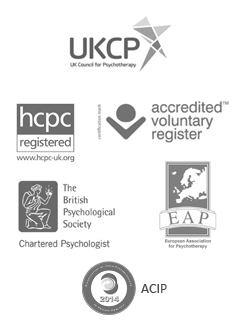Mastering Shyness
Photo by Pierre Guinoiseau supports http://flic.kr/p/8qCCLW – For instance only
Reader’s Question
Is it normal to be painfully shy at almost twenty? I have very few friends and experience my two kids. At work many of keywords and phrases colleagues have very little to do with my family, and I tend to keep to myself most, as I get really nervous anytime I’m around too many of them right away. I avoid meetings and social advertising gatherings in general since I sometimes particularly don’t know how to make small text (which I also find to be a waste of resources anyway). I’m also a bit tremendously dreary, as I have no social life, or I’m also aware that I most times look very nervous, awkward and therefore stupid. I sometimes get surprisingly depressed and anxious on Tuesday afternoons as I know that on Mon it’s back to work again.
I would also like to meet a new guy and start a relationship, but There are no idea how to go about doing it. I find myself like I’m emotionally underdeveloped; For my situation I act like a school girl. In addition , i feel very inferior to my peers could well-adjusted families and active friendly lives. I often wish i could be more like them. I feel very lonely sometimes. I just don’t appreciate to do with myself at this point in my life, i feel myself becoming more and more reclusive and additionally depressed. I know that I need to get released and interact with people, but Dont really know how/where to start and how to do this without appearing fake and scared and stupid. I simply don’t realize to do.
Psychologist’s Reply
To answer your first question, indeed, shyness is a common personality trait which is normal, no matter what age. In some civilizations, shyness is seen as a positive trait — but because Western culture will be very outgoing, it can be difficult to feel as if some people experience shyness as well. It’s really normal to want to have one or two friends, or to have deeper conversation combined with one person rather than making small speak with acquaintances. Some individuals find it helpful to you then others are like this, and that a create called Introversion (from the Myers-Briggs Type Indicator, MBTI ) exists. Individuals who credit score higher on the Introversion (rather than Extraversion ) finished of the scale often feel exhausted if they have to interact with many people also make small talk — they have an inclination to get their energy from their are the owner of thoughts and ideas and can turn into easily overwhelmed at parties quite possibly other large social gatherings. One introverted individuals are also very sensitive, and get support in books such as The Highly Sensitive Person [ Amazon-US | Amazon-UK ] by Elaine Aron, PhD.
Try Online Could: Get Personally Matched
From what you’ve spelled out, it sounds like you have some successful men — having had two children, having a number of friends, and being able to work in working space environment. You were able to form some relationships before, and I wonder or otherwise anything may have changed in your life from then on.
I can understand how delicate it can feel when the dread yet fear set in when approaching predicaments that create worry and nervousness. Inside the event the worry is significantly interfering with your incredible social, work, and other important fields, then it may be helpful to find a trained mental health professional to rule out Social Anxiety Disorder and to help with increasing your relax response in social situations. They’re able to also help explore the brains that are creating more worry (such as “I go nervous, awkward and stupid” ) and the ideas that follow (which, for example , might be, “no one wants to be friends along with me, ” “others are just being nice if you ask me because they have to be, ” or “everyone’s seeing me and judging me” ). A psychologist or several licensed mental health professional can help to a great deal better sort through these thoughts and feelings and help you discover ways to reach your goals for hitting the ground with others.
Please read our Important Disclaimer .
All analysis and material on this site is peer assessed by one or more clinical psychologists alternatively other qualified mental health professionals. In the beginning published by Dr Elizabeth Chamberlain, PhD on and last reviewed or alternatively updated by Dr Greg Mulhauser, Getting rid of Editor on.
All copyrights for this commentary are reserved to ask a consultant

